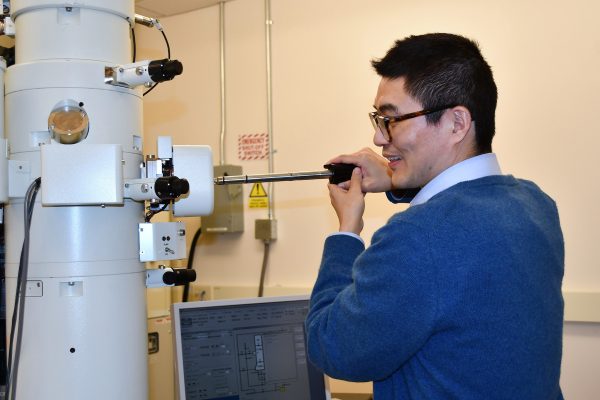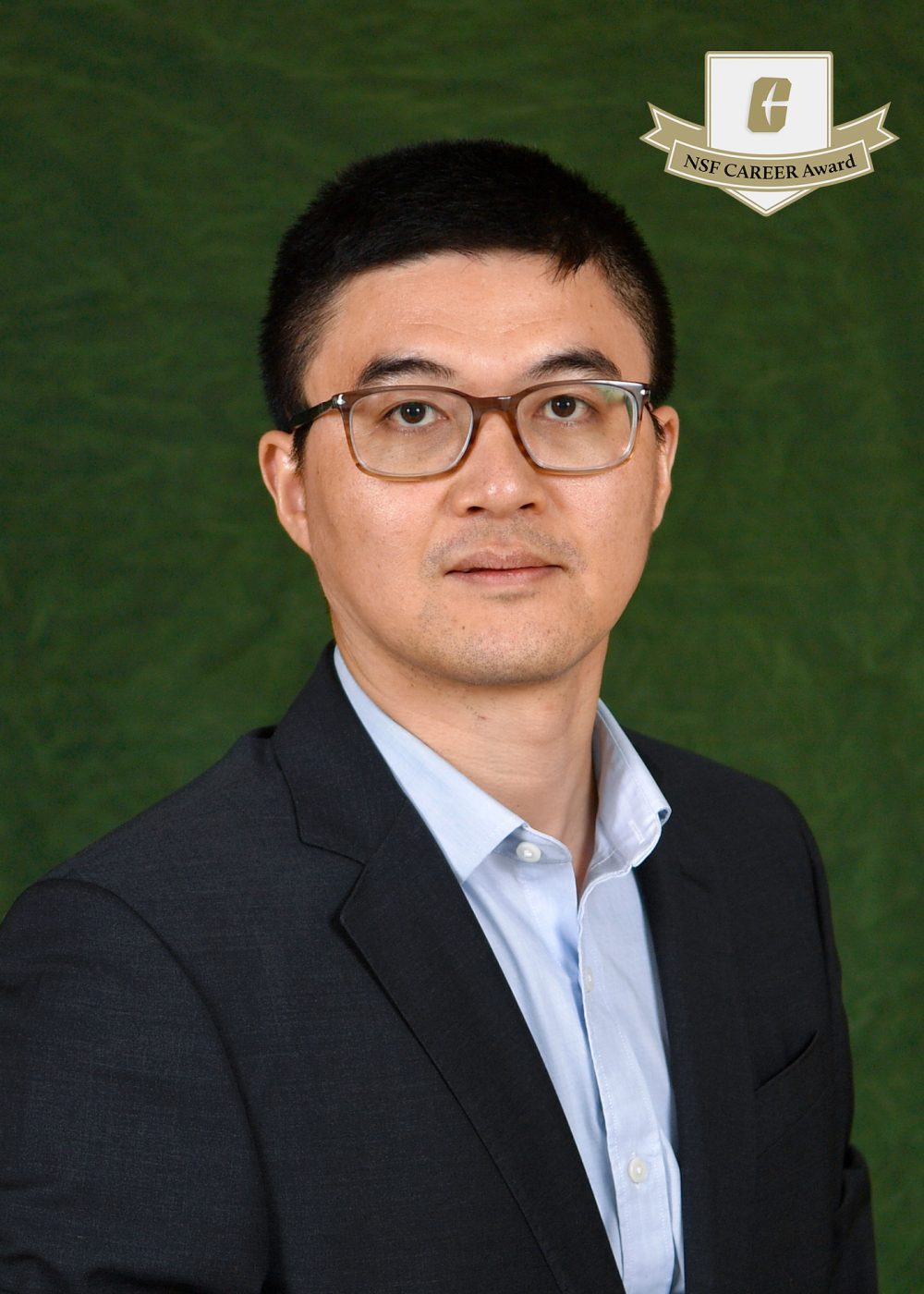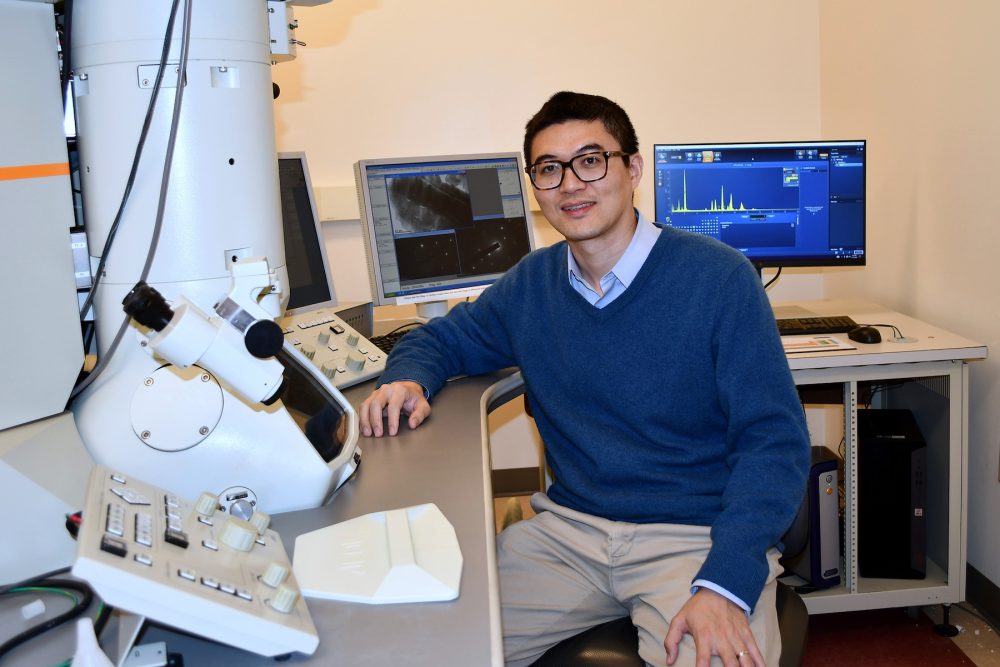Unraveling the secrets to tougher materials to support safer, lower cost energy production

Youxing Chen, assistant professor of mechanical engineering with W.S. Lee College of Engineering and the Energy Production and Infrastructure Center, has earned an NSF CAREER Award for his research proposal, “Atomic-level understanding of stability and transition kinetics of 3-dimensional interfaces under irradiation.” The award, considered the NSF’s most prestigious award in support of early-career faculty in STEM, provides $555,785 to support Chen’s study of metallic nanostructure, which will ultimately benefit the energy industry as they work toward safer energy production at lower costs.
Chen explains that scientists are on a fascinating mission to create super-tough materials that withstand extreme conditions like blistering heat, immense pressure, and even radiation. One way to achieve these tougher materials is to use a special ingredient known as “interfaces,” which are like secret agents in nanostructured composites that determine their unique properties.

Recently, an exciting discovery was made unveiling a new type of interface known as a “3D interface,” providing the opportunity to add a new dimension to materials.
However, there’s a twist: scientists don’t fully understand how these 3D interfaces function, especially when they face radiation.
Chen will use a material called Copper Niobium (“Cu-Nb”) as a model to decode the secrets of these 3D interfaces. This will allow him to:
- Understand the fundamentals of these 3D interfaces at the tiniest atomic level; and,
- Explore how these 3D interfaces respond when exposed to radiation.
Because these new materials have the potential to revolutionize the way engineers build structures, particularly in the realm of nuclear energy, they could make nuclear reactors safer at lower cost.

Ultimately, Chen’s investigations will accelerate the development of structural material for energy companies, including in the advanced manufacturing (e.g., additive manufacturing, laser surface manufacturing, and diamond turning) and nuclear industry, to create a better, more sustainable world.
More broadly, Chen’s research focuses on the materials’ response under extreme environments, such as radiation, load, strain rate and temperature. He investigates the material’s behavior across multiple length scales, from atomic to macroscopic scale.
Chen’s grant is UNC Charlotte’s 16th NSF CAREER Award since 2017, and third since May.